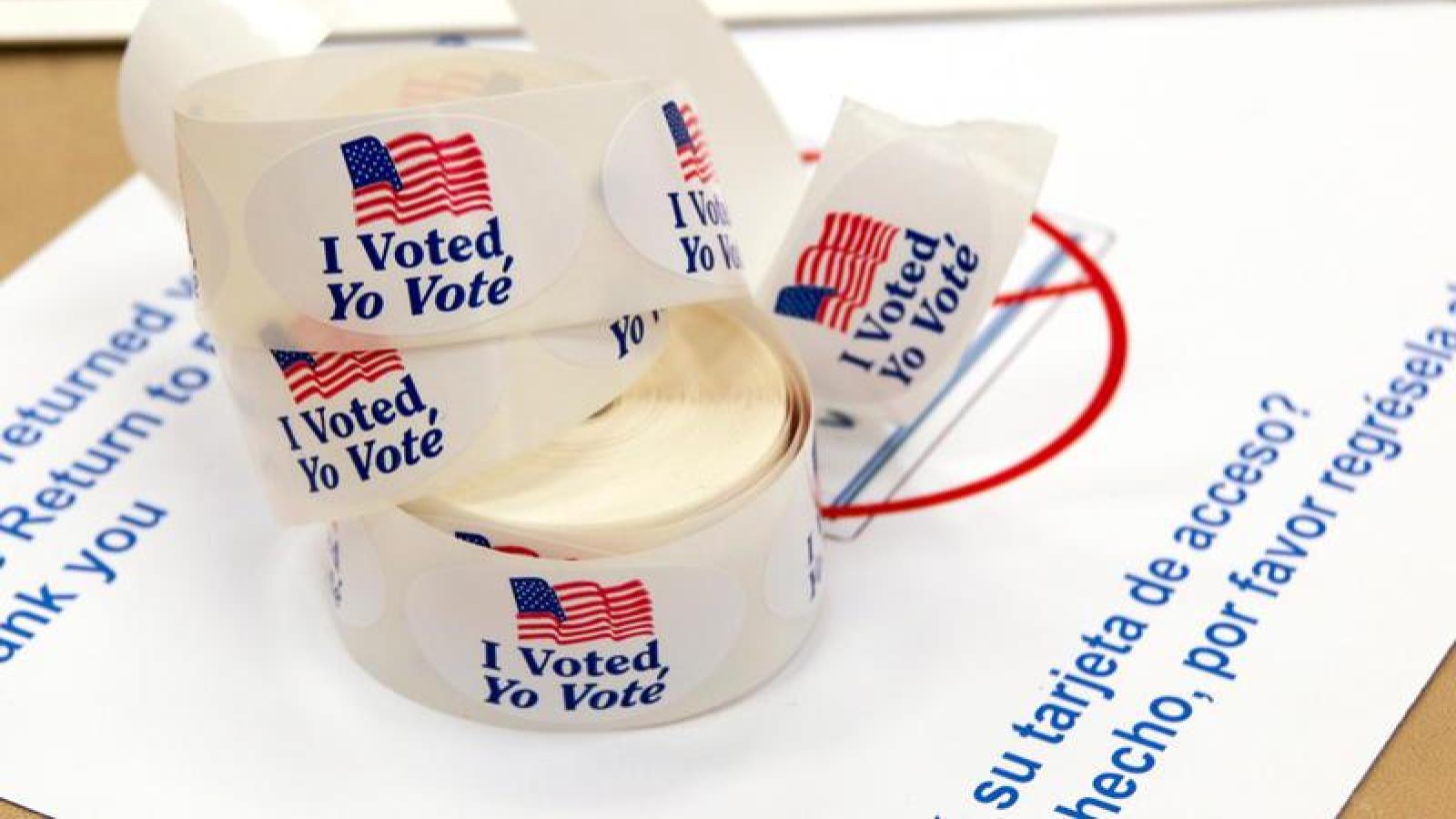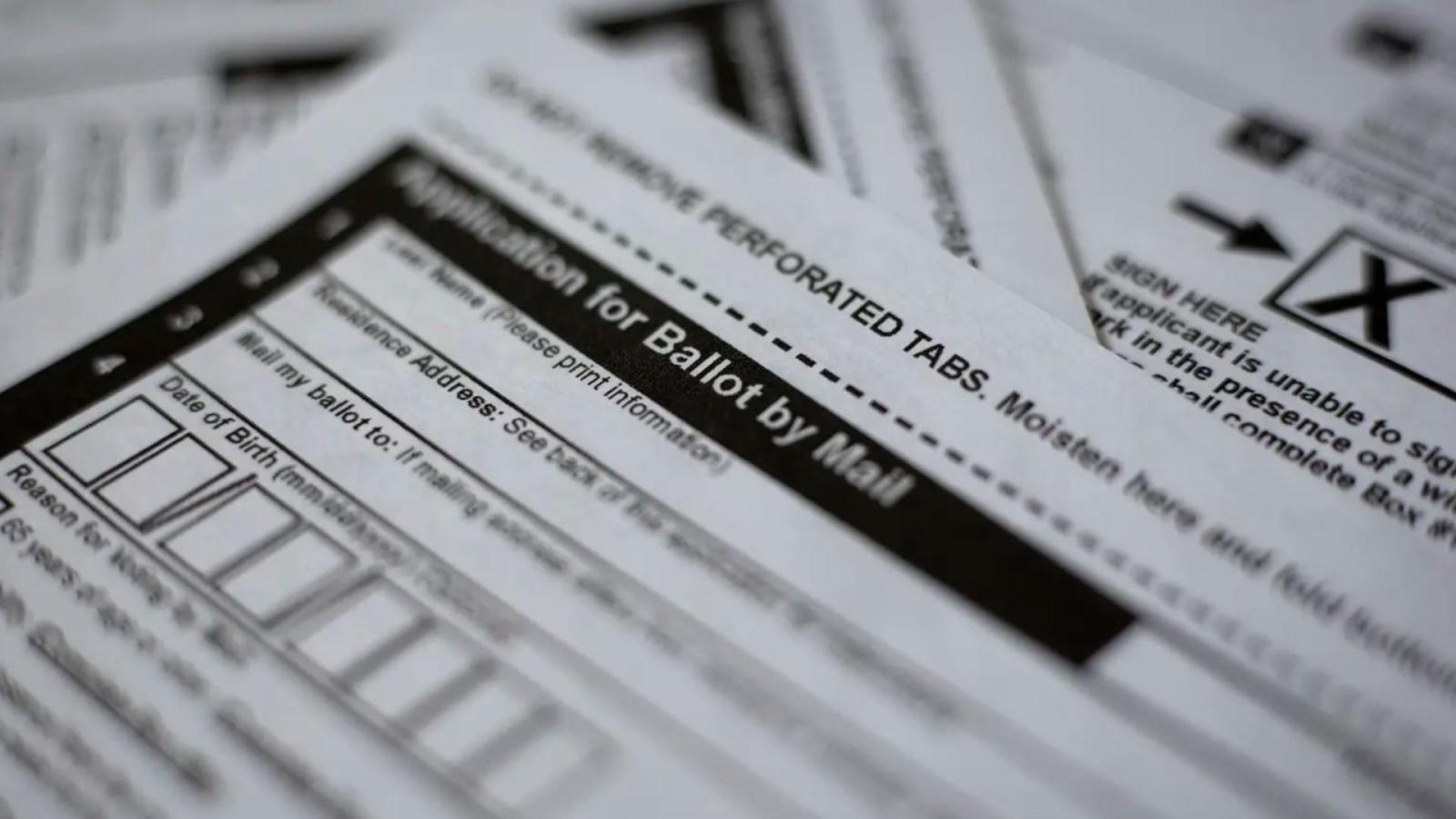Chairman Cain, here’s how we can improve election integrity in Texas
The first House Elections Committee hearing highlighted that secure and accessible elections are well within the realm of possibility for Texas’ elections, if our lawmakers lead with integrity themselves.

Yesterday marked the first time the House Elections Committee met during the 87th Texas Legislature signaling a transition from introducing bills and setting up committees into the nitty gritty, and sometimes messy, policy making. We heard from staff from the offices of the Texas Department of Public Safety, Texas Secretary of State and Attorney General of Texas.
Leading up to and during this meeting, election integrity has emerged as a top priority for our state leaders and lawmakers on this committee. We agree – we need to continue to strengthen our election systems so that every eligible voter can easily and securely cast a ballot and have the voices of Texans represented in full force.
However, much of the rhetoric and legislation we are seeing on the issue further restricts access for eligible voters in the name of election integrity.
Data shows that the biggest problem in Texas isn’t that people are voting illegally. After 22,200 staff hours from Attorney General Ken Paxton’s office, there were only 16 minor voting offenses from the November 2020 election, out of over 11 million ballots that were cast statewide, or 0.0001%
The real problem for election integrity in Texas is that our outdated systems cause errors and barriers that disenfranchises eligible voters and make it harder to register and vote. We should make every effort to make it as simple as possible for Texans to cast a ballot.
Elections Chairman Briscoe Cain (R-Deer Park) opened the committee hearing with the hope that “the Lone Star State will be an example of election integrity that other states will follow.”
Here are TexPIRG’s recommendations to strengthen our election systems:
-
Modernize our outdated voter registration systems.
Despite the fact that most of us use our computers or smartphones to do everything from keeping up with the news, to booking travel and paying our bills, Texas is still using pen and paper to register the vast majority of its voters.
In late September 2020, the Texas Department of Public Safety implemented an automatic voter registration system for anyone who was renewing or updating their driver’s license. Under this system, any citizen who meets registration eligibility requirements is given the option for DPS to transmit that information to the Secretary of State to register them to vote.
The DPS reported during yesterday’s hearing that 500,000 people have registered to vote using their automatic voter registration system and they have not experienced any complications or security issues, so it’s clear that we are capable of running such a system securely.
Expanding automatic and online voter registration would further prevent errors from pencil and paper registration that may require citizens to untangle problems when they go to cast their vote on Election Day.
-
Strengthen voting by mail
There is an unfounded idea that voting by mail provides the “biggest opportunity for mischief” as Representative Clardy put it during yesterday’s hearing. In truth, instances of vote-by-mail fraud are negligible.
This election saw more people voting by mail in Texas and across the country than any other election. Keith Ingram, the Director of the Elections Division at the Secretary of State testified that this election was “smooth and secure” and National Security experts have said it was the “most secure in American history” and “there is no evidence that any voting system deleted or lost votes, changed votes, or was in any way compromised”.
We can safely expand voting by mail to every registered voter in Texas. Fortunately, we’re not starting from scratch in Texas. We can learn from states that already have widespread vote by mail and implement simple security measures like ballot tracking, which Ingram said the office of the Secretary of State can “easily add”.
As for widespread ballot harvesting, Ingram assured the committee “if someone tries to do this on a large scale, it will get caught”. He said that patterns emerged in vote by mail requests that his office was able to recognize and stop before any fraudulent votes were cast.
-
Improve voter access, especially among new voters
Ingram also testified that they did not encounter anyone who had trouble registering or voting in the November 2020 election. Any of our student volunteers who worked tirelessly to register hundreds of their peers to vote as part of our New Voters Project can tell you this was not the case.
TexPIRG intern and St. Edward’s University student, Ethan Tobias, wrote in the Austin American Statesman:
“When helping register college students to vote, I witnessed the confusing and archaic process of registering to vote. It has put up barriers limiting the people’s voice.”
Without online voter registration, registering to vote was a lengthy, multi-step process. Especially if – like many of the students we spoke to – they didn’t have a printer and/or stamps to send in their voter registration form. Students weren’t encountering volunteer deputy registrars on campus as frequently because they were learning remotely; staying home and staying safe during the pandemic.
Once a student does make it onto the voter rolls, there are countless other barriers to make it to the ballot box from strict ID laws and distant polling locations to finding time between work and classes to wait in line to vote. Young people are more likely to experience voter barriers than older generations but that first ballot can serve as a building block to more active involvement in civic life. Legislators should strive to remove barriers for new voters so the voices of Texas are fully represented in our elections by allowing student ID’s as a valid form of voting identification and requiring polling places at large campuses (HB 93, HB 160 and HB 2061).
Chairman Cain said that Texas’ elections must be “free, fair and secure” and this is well within the realm of possibility for our elections if our lawmakers lead with integrity themselves. Solutions must focus on modernizing our election infrastructure by using safe technologies to increase access to the polls while also increasing the security of our elections.
TELL GOV. ABBOTT TO OPPOSE ANTI-DEMOCRATIC LEGISLATION
Texas is already the hardest state to vote in, and the pandemic only made it harder. Now, Gov. Abbott is trying to pass new laws that would only make it more difficult to vote.
Topics
Authors
Lauren Banister
Find Out More

TexPIRG fall update

Important wins for Texas consumers this legislative session

